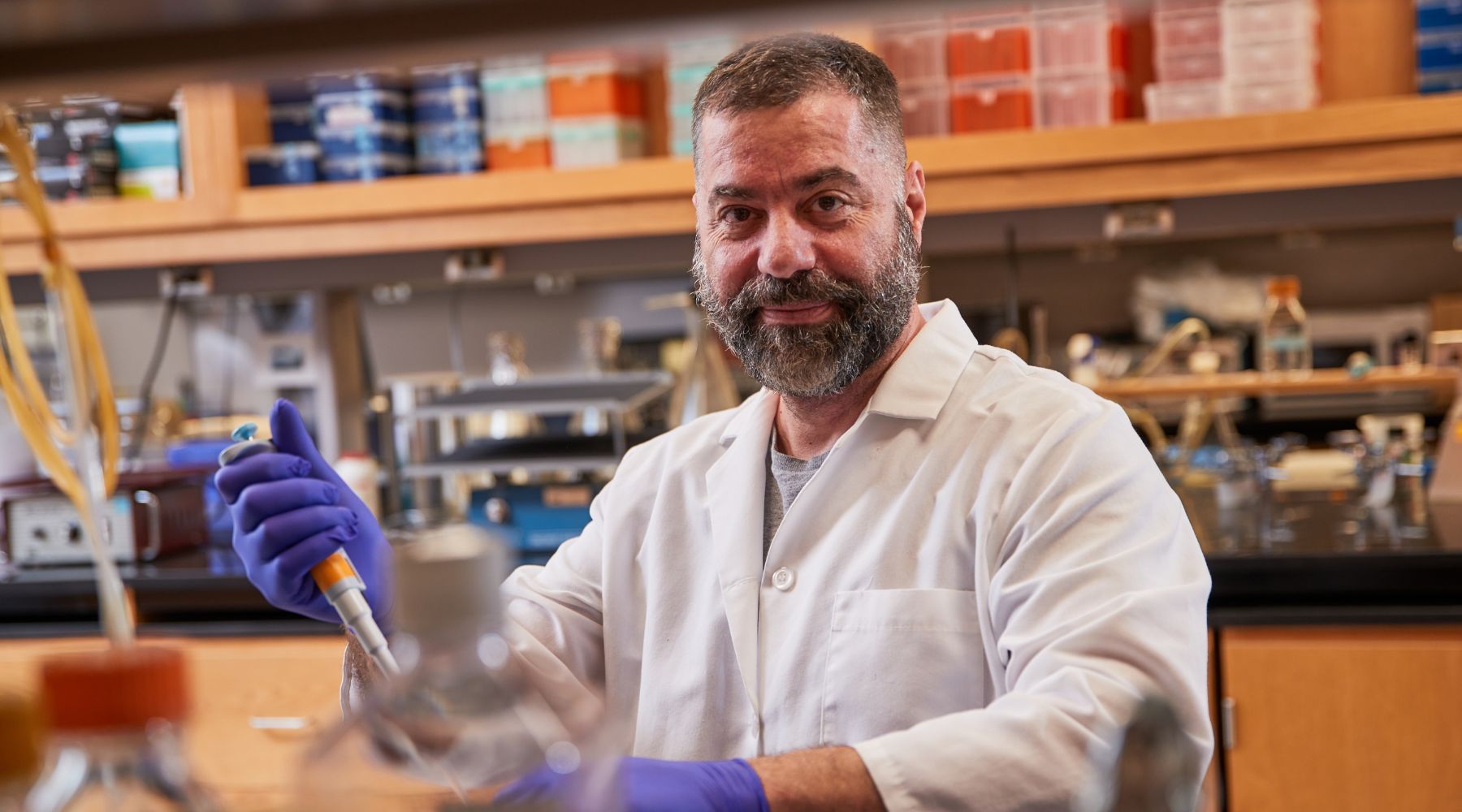The National Institutes of Health has awarded the Oklahoma Medical Research Foundation $1.8 million to better understand the errors in cell division that lead to miscarriages and certain birth defects, including Down syndrome.
With the five-year grant, Roberto Pezza, Ph.D., hopes to determine what causes these errors in the reproductive cells that comprise eggs and sperm. In his lab at OMRF, Pezza studies aneuploidy, which occurs when cells have more or less than the usual number of chromosomes.
Chromosomes, found in the nucleus of every cell, contain long strands of DNA. Most people inherit 23 chromosomes from each of their parents. When that number is off by even one, miscarriage and birth defects often result.
“Currently, there is no way to predict or prevent these errors,” said Pezza, who joined OMRF’s Cell Cycle and Cancer Biology Research Program in 2009 from the NIH. “These abnormalities cause half of all the miscarriages that occur during the first trimester, and the collective heartbreak that families experience as a result is enormous.”
The grant will help him design a new application for existing imaging technology. Pezza hopes this technological advancement will highlight how these errors occur during the formation of eggs and sperm. Ultimately, he hopes it will enable scientists to see where the process goes wrong and develop ways to prevent chromosomal errors.
“This particular research by Dr. Pezza is sort of like understanding how a car works,” said Gary Gorbsky, Ph.D., who leads OMRF’s cancer studies. “You can only fix a malfunctioning vehicle if you know how the various parts work together. The same holds true for our cells. Dr. Pezza’s technology provides a far more sophisticated grasp of the normal function of cells, and it will help us understand how errors occur during cell division.”
Pezza’s grant, 1R01HD110990-01A1, is funded by the Eunice Shriver Kennedy National Institute of Child Health and Human Development, a part of the NIH.



